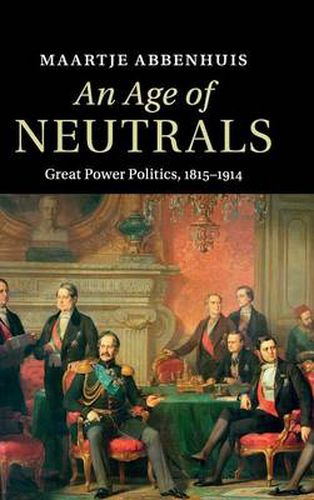Readings Newsletter
Become a Readings Member to make your shopping experience even easier.
Sign in or sign up for free!
You’re not far away from qualifying for FREE standard shipping within Australia
You’ve qualified for FREE standard shipping within Australia
The cart is loading…






An Age of Neutrals provides a pioneering history of neutrality in Europe and the wider world between the Congress of Vienna and the outbreak of the First World War. The ‘long’ nineteenth century (1815-1914) was an era of unprecedented industrialization, imperialism and globalization; one which witnessed Europe’s economic and political hegemony across the world. Dr Maartje Abbenhuis explores the ways in which neutrality reinforced these interconnected developments. She argues that a passive conception of neutrality has thus far prevented historians from understanding the high regard with which neutrality, as a tool of diplomacy and statecraft and as a popular ideal with numerous applications, was held. This compelling new history exposes neutrality as a vibrant and essential part of the nineteenth-century international system; a powerful instrument used by great and small powers to solve disputes, stabilize international relations and promote a variety of interests within and outside the continent.
$9.00 standard shipping within Australia
FREE standard shipping within Australia for orders over $100.00
Express & International shipping calculated at checkout
An Age of Neutrals provides a pioneering history of neutrality in Europe and the wider world between the Congress of Vienna and the outbreak of the First World War. The ‘long’ nineteenth century (1815-1914) was an era of unprecedented industrialization, imperialism and globalization; one which witnessed Europe’s economic and political hegemony across the world. Dr Maartje Abbenhuis explores the ways in which neutrality reinforced these interconnected developments. She argues that a passive conception of neutrality has thus far prevented historians from understanding the high regard with which neutrality, as a tool of diplomacy and statecraft and as a popular ideal with numerous applications, was held. This compelling new history exposes neutrality as a vibrant and essential part of the nineteenth-century international system; a powerful instrument used by great and small powers to solve disputes, stabilize international relations and promote a variety of interests within and outside the continent.